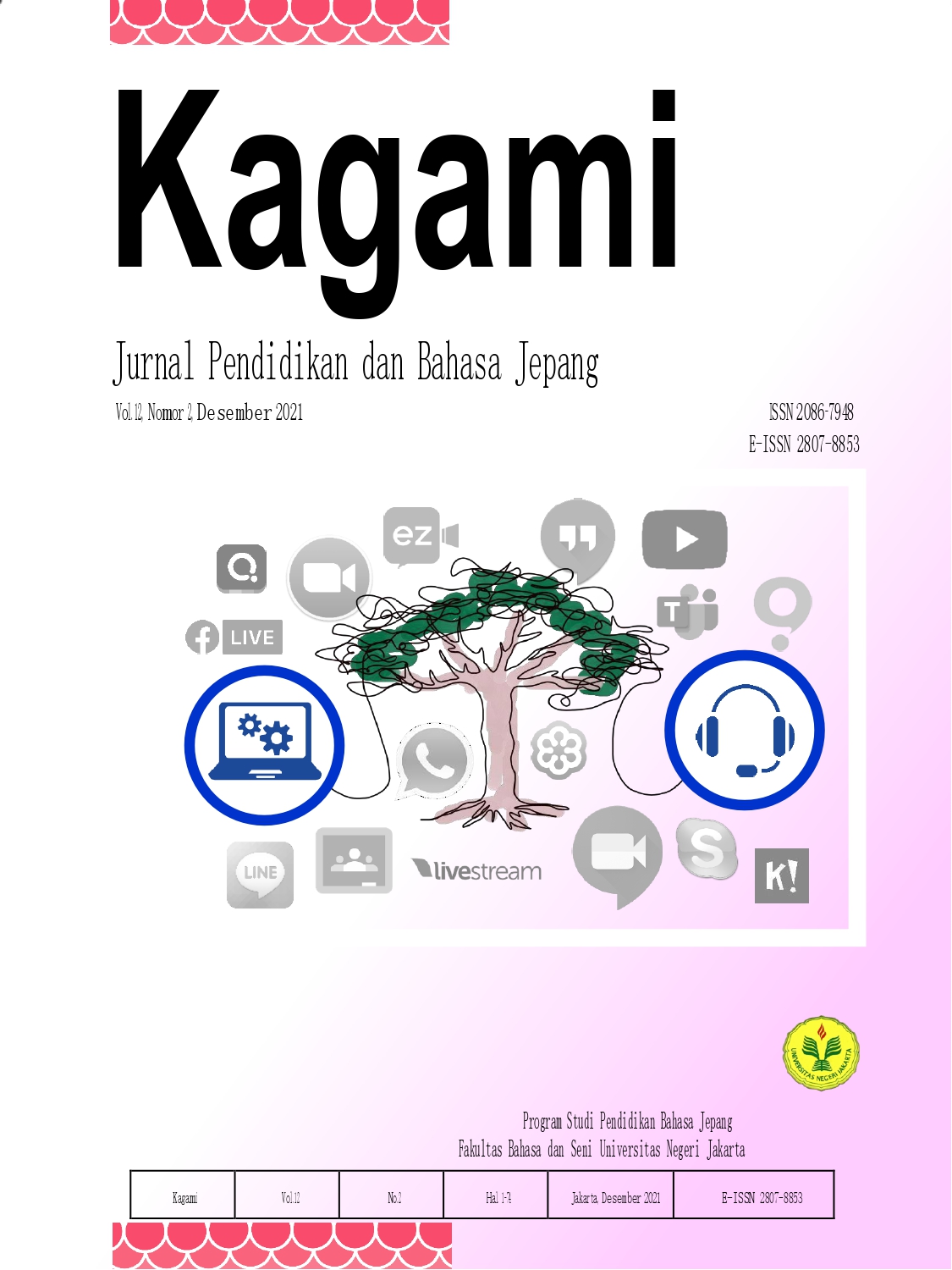RELEVANSI KEBUTUHAN STAKE HOLDER TERHADAP PENGEMBANGAN KURIKULUM BERBASIS KETERAMPILAN ABAD 21
Keywords:
Relevance, Stakeholder, 21st century skills-based curriculumAbstract
This research is part of the research on curriculum development of the Japanese Language Education Study Program FBS UNJ. There are two things behind this research, namely the Japanese Language Education Study Program curriculum has undergone several changes since its establishment in 2006 until now, the 2006, 2007, 2010, 2015 and 2019 curriculum, as well as the demands for curriculum achievement in the 21st century, that is creativity and innovation. As a preliminary study, this research focuses on the relevance of stakeholder needs to the development of a 21st century skills-based curriculum. The results of the research are the basis for developing the 21st century skills-based Independent Merdeka Belajar Kampus Merdeka (MBKM) curriculum. The methodology used is a descriptive research method by taking data through questionnaires and interviews that aim to determine the relevance of stakeholder needs to the development of a 21st century skills-based curriculum. As a curriculum based on 6C skills; creativity, critical thinking, character, collaboration, communication and computational thinking, the perception of stakeholder needs will be known for its relevance to development 21st century skills-based curriculum. The results show that the 21st century-based curriculum is relevant to the needs of stakeholders, because the curriculum synergizes with graduate workplace conditions. However, strengthening of communication skills in foreign languages, collaboration in teams, and critical thinking needs to be improved and maximized in lectures.
References
Ennis, C. (2019). McGraw-Hill Education Partnerships for 21st century. November 2018.
J.Moleong, L. (2004). Metodologi Penelitian Kualitatif. PT. Remaja Rosdakarya.
Mutuma, W., Nyerere, J., & Kyalo, D. N. (2019). STAKEHOLDERS INVOLVEMENT IN CURRICULUM DEVELOPMENT AND. September.
Nadiroh, N., Zulfa, V., & Yuliani, S. (2021). Learning transformation of the 21stcentury curriculum for prospective teacher in term of eco-literacy. IOP Conference Series: Earth and Environmental Science, 802(1). https://doi.org/10.1088/1755-1315/802/1/012009
Nikolov, P. M. & M. (2010). Curriculum Development: The Interface Between Political and Professional Decisions. https://doi.org/10.1093/oxfordhb/9780195384253.013.0018
Pinheiro, R., & Organisations, T. R. (2017). Chapter 4 : The Role of Internal and External Stakeholders. March 2015. https://doi.org/10.1007/978-94-017-9570-8
Takeda, I. (2016). Report : Project-Based Learning with 21 st Century Skills for the Japanese Language Classroom. 1–7.
UNESCO. (2009). Overcoming inequality : why governance matters.
Uzoamaka, A. J. (2021). Teaching and Learning of 21st Century Learners in Anambra State Secondary Schools: Exploring teacher’s preparation and learning environment. 1–16. https://doi.org/10.33422/2nd.ntteconf.2020.10.51





